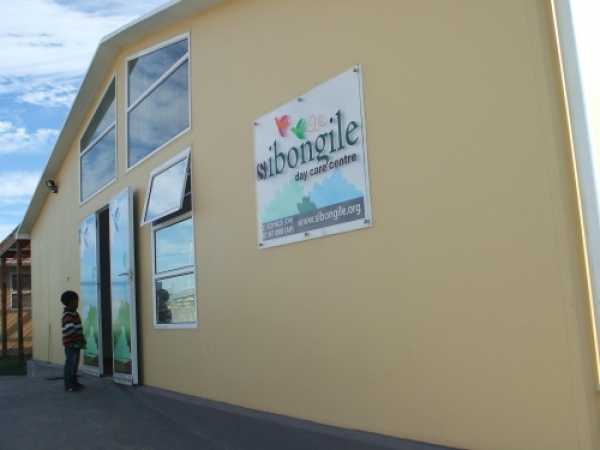

Sibongile Centre offers care to children with disabilities in Khayelitsha. Photo by Nomasango Xabanisa.
3 March 2015
Nomasango Xabanisa knows only too well how time-consuming it is to look after a disabled child. Her own daughter, Sibongile, had cerebral palsy.
Sibongile died of pneumonia when she was just 15 years old.
But her name has been given to the day and night care centre which her mother has opened in Phakamisa in Khayelitsha.
“She was the one who inspired me to open the centre. I looked after her on my own, I struggled to feed her and to buy nappies. Transport to hospital was also very difficult. I couldn’t even afford to pay someone to look after her while I was at work,” said Xabanisa.
Opened in 2005, Sibongile centre aims to provide quality care to children with cerebral palsy and other severe disabilities in the Khayelitsha community. With just 12 children in 2006, the centre now cares for 52 children between the ages of two and 18. There are also three residential homes for children.
“I wanted to pass on the message to other parents who have children living with disabilities that there is support in the community for them, they are not alone.”
Xabanisa first operated from two shipping containers which were donated to her. There was no electricity or running water, little space, and very little money for food, clothing or nappies. But people noticed the work that Xabanisa was doing in the community, and she attracted funders and donors.The day care centre now operates Monday to Friday from 7.30am to 4pm and the homes, situated in Khayelitsha’s Ilitha Park, run 24 hours a day, seven days a week.
The centre also caters for children with disabilities such as developmental delay, Down syndrome and autism.
“We have a support group programme where parents interact and advise each other on how to deal with disability and its challenges. Because the stigma of disability is there, most children are being neglected because of the difficulties parents go through,” said Xabanisa.
Asked what happens to the children in the homes once they pass the age of 18, Xabanisa said: “Because of their disability they don’t have that much time. Some of them pass on before reaching the age of 18. But we have children who are 18 but their physical appearance doesn’t say so, and because of the lack of places for special needs in or surrounding Khayelitsha, we keep them.”